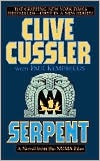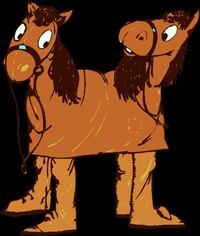Tools for Collaboration, Editing, and Beta Reading
by Steve Hooley

Today we’re going to discuss tools, one of my favorite topics. I have been a big fan of Beta Books for the past three years, using it to gather comments and reviews from students at surrounding schools as part of my editing process. This year, when I began inviting beta readers, I discovered that the website had a problem with the reader signup link not working. The support at Beta Books was good and helped me find a workaround, but it caused a pause in beta reader invitations.
I’ll discuss Beta Books at the end of this article, because I still think it is the best tool for beta reading, especially when they get the signup link fixed.
While I was frantically deciding what route I should take for beta reading, I began looking for other choices. I could not find any other site dedicated to just beta reading, and searches ended up being a review of collaboration tools.
I had used Word several years ago while working with my editor, but we had problems with different versions of Word. Google Docs worked nicely in the past when I was collaborating with someone who used Word for Mac, while I was using a PC. What were the “experts” saying in comparing those two? And what else was available and free?
I found these two articles that are worth reading for a quick review of the tools available, and for a comparison of Word vs. Google Docs:
The Top 7 Online Collaborative Writing Tools
Google Docs vs. Microsoft Word: 4 Reasons why Google is the Clear Winner
The first article (3/30/20) briefly discusses 7 writing tools and concludes that Word is better than Google. The other five tools discussed are Draft, Etherpad, Quip, Dropbox Paper, and Penflip. I’ve had no experience with any of them.
The second article (6/2/21) is written by a writer at SADA, which is associated with Google, and gives 4 reasons why Google is better than Word.
Two misconceptions that I had (and may be worth mentioning): I thought that when using both Google and Word, all collaborators needed to have a Word or Google account. According to my reading, the Word online tool can be shared by the owner of the document (who has a Word account) with collaborators (who do not have an account). And with Google Docs, the owner of the document must have Google account, but collaborators if they are only viewers and commenters – not editing do not need a Google account.
So, both Google Docs and Word could be used for beta reading.
I look forward to your comments on these two contenders in today’s discussion. And any comments on the other five tools listed in the first article would be appreciated.
But, before that, I’ll give you a quick review of Beta Books and encourage you to visit their site to check out the specifics.
Beta Books was created in 2016 as a site dedicated to beta reading only, built to solve the problem of format compatibility, knowing and tracking if readers were actually reading, and organizing the reader comments so they could be searched in one place by chapter or by reader.
For the writer, the site is intuitive and easy to navigate. Sign up is quick, and pricing is very economical:
- Free to try for the first book with up to three readers
- Standard plan for 14.99/mo. with unlimited number of books and up to 22 readers per book
- Pro plan for 34.99/mo. and unlimited number of readers plus the ability to have a collaborator or a view-only monitor.
And, best of all, the writer can “turn off” the subscription during the months it is not being used. When the writer turns it back on, all the previous data is there.
Set up for a book is simple. After signing in and selecting a plan, the writer goes to the dashboard and clicks on “Create a New Book”. After book setup, then clicking on “content,” the writer clicks on “Add a chapter.” The chapter is titled, and can then be copied and pasted into the site from a Word document. (With my first book, I tried uploading the entire manuscript. I couldn’t make that work, and would recommend uploading one chapter at a time.) At that point, the writer can also leave pre-chapter and post-chapter questions for the reader.
When invited readers sign up, they can be given a specific link that takes them to Beta Books and the sign-up page for readers. (That’s what is not working currently.) The other option is to send an invitation email from the Beta Books site, and the reader responds to the email and signs up. Once in, the readers find themselves at the current book and ready to read and comment. They can highlight and comment in line, leave an emoji, or comment at the end of the chapter.
The writer is sent an email when a comment is written, and can respond on the site to the commenter. This option can be turned off.
When the writer begins reviewing the comments, they can review by specific beta reader or by specific chapter.
Also, under the dashboard, the writer can track who has accepted an invitation, and can track how far the reader has read, as well as how many comments they have made.
That’s probably more than you wanted. I’ll try to answer any questions in the discussion.
Today’s questions:
- What tools or software do you prefer for collaboration, working with an editor, and beta reading?
- In your opinion, what are the pros and cons of Word vs. Google Docs for collaboration, editing, or beta reading?
- What other route(s) besides what I’ve discussed have you found to accomplish your goals with collaboration, editing, or beta reading?
- Any experience or comments regarding the other 5 tools mentioned in the first article?






